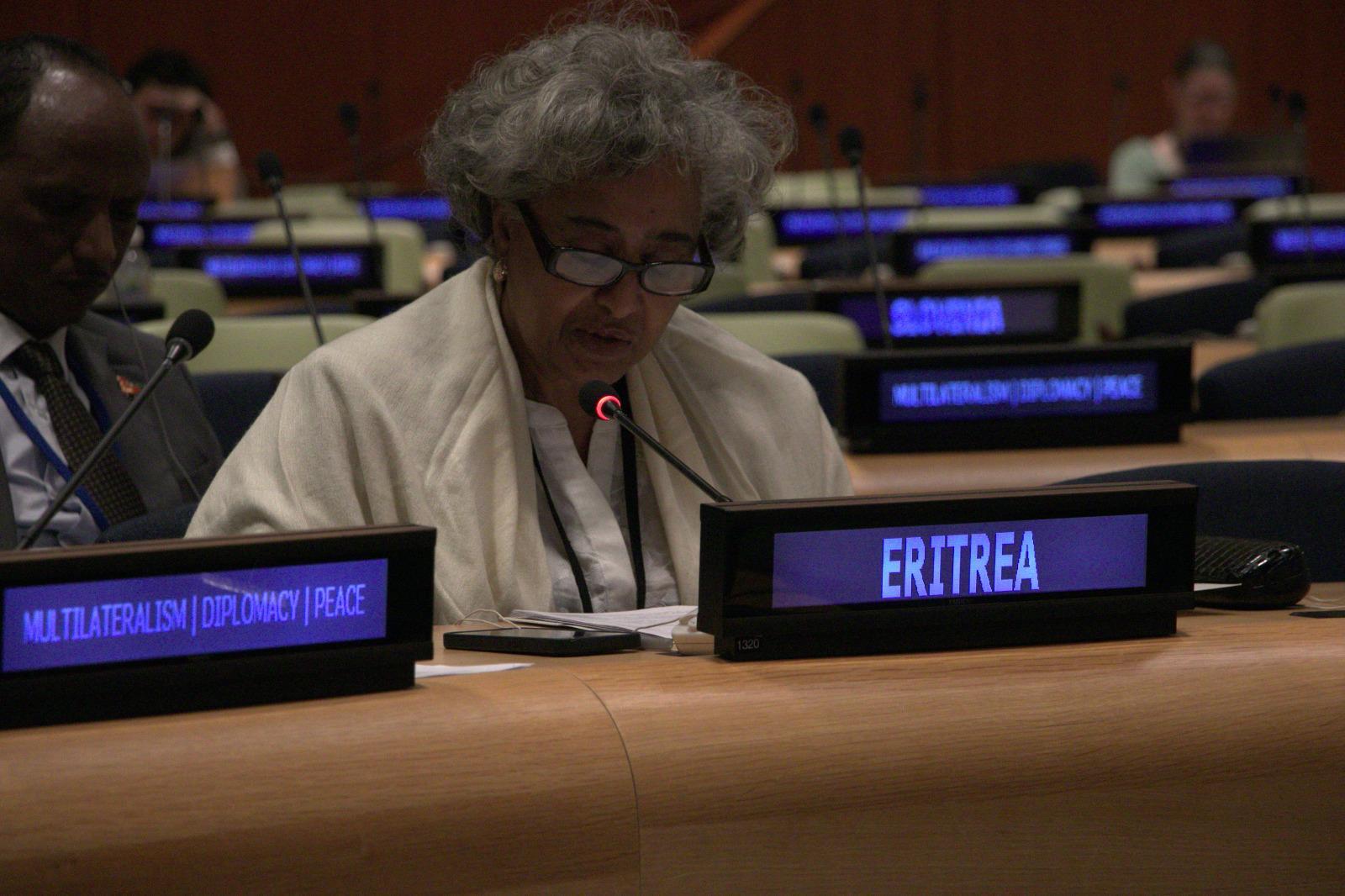
Africa-Press – Eritrea. Excellencies,
Distinguished Delegates,
On this significant occasion of the International Day for Multilateralism and Diplomacy for Peace, the State of Eritrea reaffirms its unwavering commitment to the principles of multilateralism, diplomacy, and international cooperation as enshrined in the Charter of the United Nations.
Eritrea, a young and resilient nation that achieved its independence in 1991 after a protracted and valiant struggle, deeply understands the value of sovereignty, justice, and solidarity. Experience has taught us that global peace and sustainable development cannot be achieved without genuine dialogue, mutual respect, and collective action. These principles—so vital to our liberation and nation-building endeavors—are also the bedrock of multilateralism.
Yet, today, multilateralism is under serious threat. The growing tendency to bypass or undermine the multilateral system through unilateralism, politicization, coercive practices, and sanctions has eroded trust among nations. These actions not only diminish the relevance of multilateral diplomacy but also encroach upon the sovereign rights of states, particularly those of developing countries in the Global South.
Eritrea condemns the imposition of illicit and arbitrary unilateral coercive measures, which contravene the spirit and letter of the UN Charter. Such measures, often imposed without due process or legitimacy, inflict collective punishment on populations, hinder socioeconomic development, and obstruct the achievement of the Sustainable Development Goals. They are a grave affront to multilateralism, international law, and the dignity of nations.
We are witnessing a troubling pattern where mechanisms meant to protect human rights and promote peace are increasingly weaponized to pursue narrow political objectives. These actions create mistrust, deepen polarization, and undermine the credibility of the multilateral system itself. For us, multilateralism cannot be genuine if it is selective, coercive, or used as a tool of domination.
Mr. Chair,
Despite these challenges, Eritrea remains a firm believer in principled multilateralism—one that is inclusive, representative, and rooted in mutual respect and sovereign equality of all nations. It’s active participation in multilateral platforms is a testament to its constructive engagement and its commitment to promoting the well-being of communities globally.
Eritrea, along countries of the region and partners, continues to endeavor for regional peace, cooperation, and integration in the Horn of Africa and the Red Sea Basin. It is constructively engaged in fostering peace and stability in Sudan, South Sudan, and Somalia—nations that continue to face complex challenges. Our efforts are grounded on the belief that regional solutions, anchored in mutual respect and national ownerships, are essential for achieving lasting peace and stability. Such approach prioritizes genuine dialogue, non-interference, and solidarity among neighboring states, recognizing that sustainable peace must be driven by the people and leadership of the region themselves.
However, we must be frank: the international multilateral system remains deeply unequal. Africa continues to bear the brunt of global injustices, including from economic marginalization to environmental vulnerability. We join other African nations in calling for comprehensive reforms—particularly the UN Security Council and the international financial architecture—to correct the historical injustices and imbalances and thereby ensure that Africa, and the Global South at large, is fully represented and respected.
Multilateralism must evolve to reflect today’s multipolar realities. It must center the voices of developing nations and prioritize their aspirations. We cannot speak of ‘diplomacy and peace’ while tolerating double standards, selective accountability, and the continued marginalization of Africa and other regions.
Mr. Chair,
As we commemorate this important day, Eritrea calls on the international community to recommit to the fundamental principles of the UN Charter—sovereign equality, non-interference, peaceful coexistence, and collective responsibility. We must resist the slide into unilateralism and redouble efforts to uphold a just and equitable international order grounded on international law.
While global challenges—from climate change and food insecurity to displacement and armed conflicts—continue to grow in complexity, the solution lies not in the erosion of multilateralism, but in its revitalization. Listening to diverse voices, engaging in respectful dialogue, and above all upholding the principles enshrined in the UN Charter must be the cornerstone of our shared path forward.
Eritrea remains ready to work constructively with all partners to build a more peaceful, just, and sustainable world. We believe that multilateral diplomacy rooted in shared principles and inclusivity, not pressure and bullying, is the only way to secure a better future for current and future generations.
Thank You!
For More News And Analysis About Eritrea Follow Africa-Press






